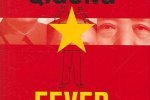
Resources
Qigong Fever
Category Library
Title
Qigong Fever
Author(s)
David A. Palmer
Year
2007
Publisher
Columbia University Press
Number of pages
356
Qugong Fever
Qigong - a regimen of body, breath, and mental training exercises - was one of the most widespread cultural and religious movements of late-twentieth-century urban China. The practice was promoted by senior Communist Party leaders as a uniquely Chinese healing tradition and as a harbinger of a new scientific revolution, yet the movement's mass popularity and the almost religious devotion of its followers led to its ruthless suppression.
In this absorbing and revealing book, David A. Palmer relies on a combination of historical, anthropological, and sociological perspectives to describe the spread of the qigong craze and its reflection of key trends that have shaped China since 1949, including the search for a national identity and an emphasis on the absolute authority of science. Qigong offered the promise of an all-powerful technology of the body rooted in the mysteries of Chinese culture. However, after 1995 the scientific underpinnings of qigong came under attack, its leaders were denounced as charlatans, and its networks of followers, notably Falungong, were suppressed as "evil cults."
Librarian's comments:
It is surprisingly difficult to draw a clear dividing line between what is “science” and what is “religion”. Qigong Fever considers a topic in which this difficulty is key to the entire narrative. It traces how, in the space of a few decades, qigong was seen as being connected to religion, medicine, sport, science, anti-science, the paranormal, and cults. Of particular relevance to the FaSCoRe Forum is the fact that it considers this movement between these different classifications within a distinctively Asian context.





